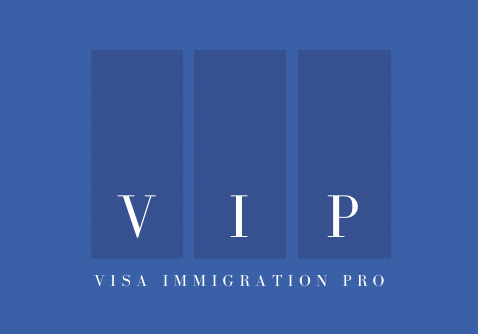Starting or expanding a business in the United States is a dream for many entrepreneurs around the world. With access to a massive consumer market, world-class investors, and a stable business environment, the U.S. is a natural destination for global growth.
But there’s one challenge that every foreign entrepreneur must face: immigration.
To run your business legally in the U.S., you need the right visa. The type of visa you choose depends on your business goals, investment amount, and whether you plan to move yourself—or your team—to the U.S.
In this guide, we’ll break down the Top 5 visa options for foreign entrepreneurs and show you how they work in real life.
1. The E-2 Investor Visa
The E-2 visa is one of the most popular options for entrepreneurs who want to invest in and operate a business in the U.S.
Key Features
- Requires a “substantial” investment in a U.S. business (typically $100,000+, though no fixed minimum)
- Available only to nationals of countries with an E-2 treaty with the U.S.
- Renewable every 2 years, as long as the business remains operational and profitable
- Spouses can apply for work authorization, and children under 21 can attend school
Best For
- Entrepreneurs who want to start a new business or buy into an existing one
- Owners of small to mid-sized businesses with growth potential
Case Study
A Nigerian entrepreneur (Nigeria is an E-2 treaty country) invested $150,000 to open a logistics company in Texas. With strong demand in the region, the business grew quickly. His spouse received work authorization, and their children enrolled in U.S. schools. The E-2 gave them flexibility without requiring permanent residence right away.
2. The L-1 Intra-Company Transfer Visa
The L-1 visa is ideal for entrepreneurs who already run a business abroad and want to open a U.S. branch, subsidiary, or affiliate.
Key Features
- Allows the transfer of executives, managers, or specialized employees to a U.S. office
- Valid for 1 year initially when setting up a new office, then renewable up to 7 years
- Provides a pathway to permanent residency (green card) through the EB-1C category
Best For
- Established business owners expanding globally
- Companies wanting to transfer trusted employees to the U.S.
Case Study
A South African tech startup wanted to access U.S. venture capital. The founder opened a Delaware subsidiary and used the L-1A visa to transfer as CEO. Within 18 months, the company raised $5 million in funding—an opportunity that would have been difficult without a U.S. presence.
3. The EB-5 Immigrant Investor Visa
The EB-5 visa is a direct pathway to a green card for entrepreneurs willing to make a significant investment.
Key Features
- Requires investment of $1.05 million, or $800,000 in a Targeted Employment Area (TEA)
- Investment must create at least 10 full-time jobs for U.S. workers
- Leads directly to permanent residency for the investor, spouse, and children under 21
Best For
- High-net-worth individuals
- Entrepreneurs seeking a green card and long-term presence in the U.S.
Case Study
An investor from India placed $900,000 in a real estate development project in Florida that created over 15 jobs. Within two years, he and his family obtained U.S. green cards, securing both personal residency and business expansion opportunities.
4. The O-1 Visa for Individuals with Extraordinary Ability
The O-1 visa is for entrepreneurs, founders, and innovators who can demonstrate extraordinary achievements in their field.
Key Features
- Requires evidence of national or international recognition (awards, media features, publications, etc.)
- Initial stay of 3 years, renewable in 1-year increments
- Can serve as a bridge to permanent residency through EB-1A
Best For
- Entrepreneurs in tech, science, arts, or business with significant recognition
- Startup founders with media coverage or notable accomplishments
Case Study
A founder from Brazil developed a groundbreaking fintech app and was featured in multiple international publications. With letters of support from industry experts and evidence of her company’s success, she qualified for the O-1 visa and relocated to New York to lead U.S. operations.
5. The H-1B Visa for Specialty Occupations
While not specifically a “business visa,” the H-1B visa can work for entrepreneurs under the right conditions.
Key Features
- Requires a job offer from a U.S. company in a “specialty occupation”
- Company must sponsor the visa and prove an employer-employee relationship
- Initial stay of 3 years, extendable to 6 years
- Subject to an annual lottery due to high demand
Best For
- Entrepreneurs who establish a U.S. company with an independent board of directors (to sponsor them)
- Professionals with advanced degrees entering tech, finance, or engineering industries
Case Study
A startup founder from Kenya structured his U.S. company with a board that had hiring authority over him. This allowed the company to sponsor his H-1B visa. He used the time to grow the business while exploring other immigration options like the O-1 and EB-2 NIW.
Final Thoughts: Which Visa Is Right for You?
Choosing the right visa depends on your:
- Country of citizenship
- Amount of investment capital
- Stage of your business (new startup vs. expansion)
- Long-term goals (temporary stay vs. permanent residency)
Each of these visas—E-2, L-1, EB-5, O-1, and H-1B—offers different advantages. The key is to align your business plan with your immigration strategy.
Ready to Take the Next Step?
If you’re serious about launching or expanding your business in the United States, you don’t have to figure it all out alone.
Enroll in our new e-course:
Legally Ready: Start Your Business in the United States as a Foreign Entrepreneur
This program walks you through business registration, immigration options, compliance, and real-life case studies so you can confidently move forward with your U.S. business goals.
Schedule a consultation to speak with a lawyer.


